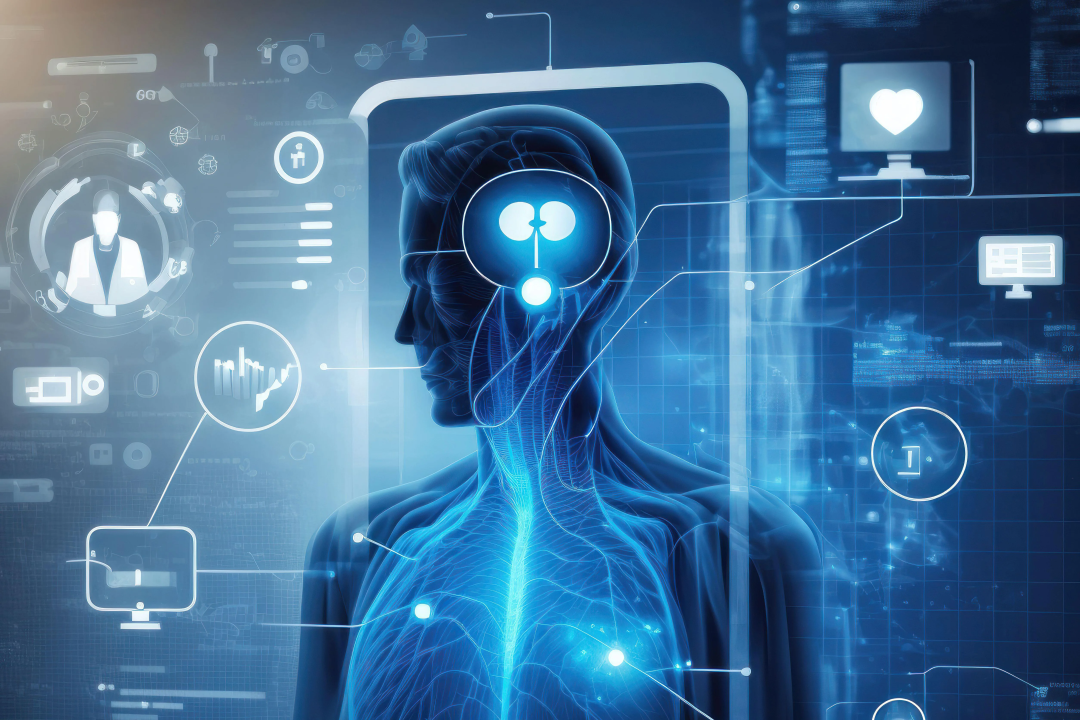AI-Powered Therapy: Balancing Benefits With Surveillance Risks

Table of Contents
The Enticing Benefits of AI in Mental Healthcare
AI is rapidly transforming mental healthcare, offering several compelling advantages:
Enhanced Accessibility and Affordability
AI-powered therapy tools significantly increase access to mental healthcare, particularly for underserved populations.
- Increased reach to underserved populations: Individuals in rural areas or those with limited financial resources often face significant barriers to accessing traditional therapy. AI therapy apps can bridge this gap, offering convenient and affordable solutions.
- Reduced cost compared to traditional therapy sessions: The cost of traditional therapy can be prohibitive for many. AI-powered solutions can provide more affordable alternatives, making mental healthcare more accessible.
- 24/7 availability for support and resources: Unlike human therapists, AI tools are available around the clock, providing immediate support and access to resources when needed most. This is particularly beneficial for individuals experiencing crises or those with fluctuating needs.
- Examples of AI tools offering these benefits: Apps like Woebot, Youper, and Koko utilize AI to provide readily accessible and often low-cost mental health support.
Personalized and Adaptive Treatment Plans
AI algorithms can analyze patient data to create highly personalized and adaptive treatment plans.
- AI algorithms can analyze patient data to tailor treatment plans: By analyzing patient responses, AI can identify patterns and tailor interventions to address specific needs and challenges.
- Continuous monitoring and adjustment based on progress: AI systems can continuously monitor patient progress and adjust treatment plans accordingly, ensuring optimal outcomes.
- Early identification of potential issues and risks: AI can help identify potential warning signs and risks early on, allowing for timely intervention and preventing escalation of mental health issues.
- Examples of AI features facilitating personalization: Many AI therapy platforms utilize chatbot technology that adapts its responses based on user input, creating a dynamic and personalized therapeutic experience.
Reduced Stigma and Increased Engagement
AI-powered therapy can help reduce the stigma associated with mental health issues and improve patient engagement.
- Anonymous access to mental health support can reduce stigma: The anonymity offered by many AI therapy platforms can encourage individuals who might otherwise hesitate to seek help due to fear of judgment or stigma.
- Interactive AI tools can increase patient engagement and adherence to treatment: Interactive features, such as gamification and personalized feedback, can enhance engagement and motivate patients to actively participate in their treatment.
- Gamification and personalized feedback can enhance motivation: AI can leverage gamification techniques and provide personalized feedback to increase motivation and adherence to treatment plans.
- Examples of AI approaches reducing stigma: Platforms that prioritize anonymity and user privacy contribute to reducing the stigma associated with seeking mental health support.
Navigating the Surveillance Risks of AI-Powered Therapy
While offering significant benefits, AI-powered therapy also raises serious concerns regarding surveillance and data security:
Data Privacy and Security Vulnerabilities
The sensitive nature of mental health data necessitates robust security measures.
- Risks of data breaches and unauthorized access to sensitive patient information: AI systems storing vast amounts of personal and sensitive data are vulnerable to cyberattacks and data breaches.
- Potential misuse of data for discriminatory purposes: Data collected through AI therapy could be misused for discriminatory purposes if not handled responsibly and ethically.
- Compliance with data protection regulations (GDPR, HIPAA): Strict adherence to data protection regulations is paramount to ensure patient privacy and security.
- Examples of data protection measures needed: Strong encryption, data anonymization techniques, and rigorous security protocols are crucial for protecting patient data.
Algorithmic Bias and Fairness
AI algorithms are trained on data, and if that data reflects existing biases, the AI may perpetuate or even amplify those biases.
- Potential for AI algorithms to perpetuate existing biases in mental healthcare: Bias in training data can lead to AI systems providing inaccurate or discriminatory diagnoses and treatment recommendations.
- Need for diverse and representative datasets to train AI models: Training AI models on diverse and representative datasets is essential to mitigate bias and ensure fairness.
- Ensuring equitable access and outcomes for all users: AI therapy systems should be designed to ensure equitable access and outcomes for all users, regardless of background or demographic characteristics.
- Examples of potential biases in AI therapy: AI systems trained on predominantly Western data may not accurately reflect the mental health needs and experiences of individuals from other cultures.
Lack of Human Connection and Empathy
While AI can provide valuable support, it cannot fully replace the human element in therapy.
- Limitations of AI in providing the emotional support and human connection crucial in therapy: AI lacks the capacity for genuine empathy and emotional understanding that is essential in therapeutic relationships.
- Risk of over-reliance on AI and neglecting human interaction: Over-reliance on AI could lead to a decline in human interaction, which can be detrimental to mental well-being.
- Importance of maintaining the human element in mental healthcare: Human therapists play a vital role in providing emotional support, building trust, and offering nuanced understanding.
- Discussions on the role of human therapists in supplementing AI tools: AI should be viewed as a supplemental tool, not a replacement for human therapists. A collaborative approach, combining the strengths of AI and human interaction, is ideal.
Striking a Balance: Ethical Guidelines and Responsible Development
To ensure the ethical and responsible development of AI in mental healthcare, several key considerations are crucial:
Transparency and User Consent
Transparency and informed consent are paramount to protect user rights and build trust.
- Clear communication about data collection, usage, and security practices: Users must be clearly informed about how their data is collected, used, and protected.
- Informed consent from users regarding data sharing and AI interactions: Users should provide explicit informed consent for data sharing and AI-mediated interactions.
- Opportunities for users to access and control their data: Users should have access to and control over their own data.
- Examples of best practices for transparency and informed consent: Clear and concise privacy policies, easily accessible data access tools, and opportunities for users to withdraw consent are essential.
Regulation and Oversight
Robust regulatory frameworks are essential for overseeing the development and deployment of AI in healthcare.
- The need for robust regulatory frameworks governing the development and deployment of AI in healthcare: Clear guidelines and regulations are needed to ensure accountability and ethical practices.
- Establishment of ethical guidelines for AI-powered therapy: Ethical guidelines should address data privacy, algorithmic bias, and the appropriate use of AI in therapy.
- Independent audits and assessments of AI systems: Regular audits and assessments are necessary to ensure AI systems meet ethical standards and perform as intended.
- Examples of existing or proposed regulations: The EU AI Act and HIPAA in the US are examples of regulations relevant to AI in healthcare.
Human Oversight and Intervention
Maintaining human oversight is crucial to ensure safety and ethical considerations.
- Ensuring human oversight in the design, implementation, and monitoring of AI therapy: Human experts should play a central role in overseeing all aspects of AI therapy development and implementation.
- Providing opportunities for human intervention when necessary: Mechanisms for human intervention should be in place to address situations where AI may be inadequate or inappropriate.
- Emphasizing the collaborative role of AI and human therapists: AI should be viewed as a tool to augment, not replace, the role of human therapists.
- Examples of human-in-the-loop systems in AI therapy: Systems where human therapists review AI recommendations or intervene when needed exemplify this collaborative approach.
Conclusion
AI-powered therapy offers significant potential to revolutionize mental healthcare, increasing accessibility, affordability, and personalization. However, it is crucial to address the inherent surveillance risks related to data privacy, algorithmic bias, and the potential for dehumanization. By prioritizing ethical development, robust regulation, transparency, and user consent, we can harness the benefits of AI in mental healthcare while mitigating its potential harms. The future of mental healthcare lies in striking a careful balance between technological advancement and responsible innovation in AI-powered therapy. Let's work together to ensure a future where AI enhances, not replaces, the human element in providing compassionate and effective mental health support. The responsible development and deployment of AI-powered therapy are vital for a future where technology serves to improve mental wellbeing for all.

Featured Posts
-
 Ge Force Now S Enrichit De 21 Jeux Ce Mois Ci
May 16, 2025
Ge Force Now S Enrichit De 21 Jeux Ce Mois Ci
May 16, 2025 -
 Women Are Drinking More A Growing Concern For Doctors
May 16, 2025
Women Are Drinking More A Growing Concern For Doctors
May 16, 2025 -
 The Single Biggest Issue For Top 10 Nba Contenders
May 16, 2025
The Single Biggest Issue For Top 10 Nba Contenders
May 16, 2025 -
 First Up Bangladesh Yunus In China Rubios Caribbean Trip And More Top News Today
May 16, 2025
First Up Bangladesh Yunus In China Rubios Caribbean Trip And More Top News Today
May 16, 2025 -
 Tam Krwz Ke Jwte Pr Mdah Ka Pawn Kya Hwa
May 16, 2025
Tam Krwz Ke Jwte Pr Mdah Ka Pawn Kya Hwa
May 16, 2025
